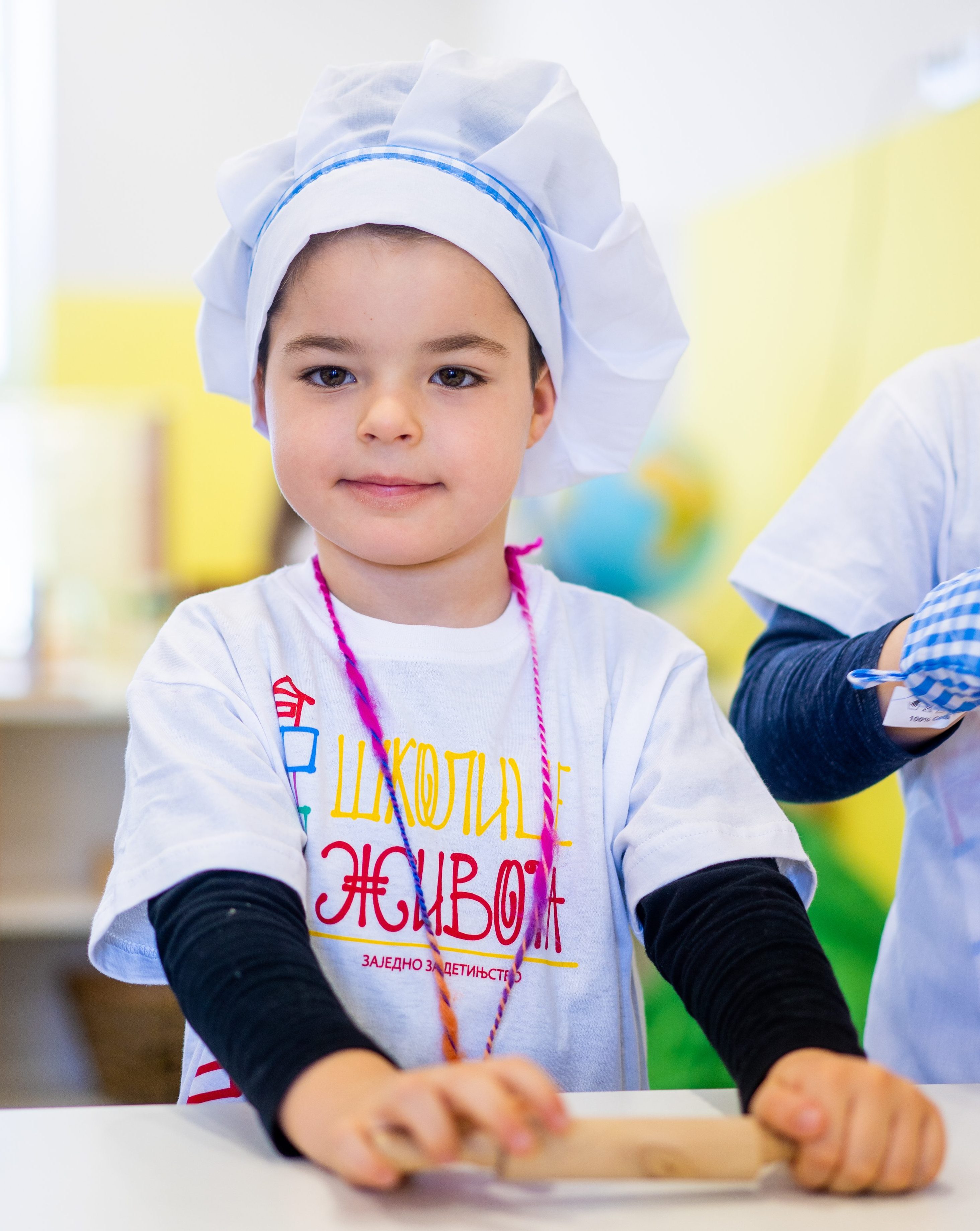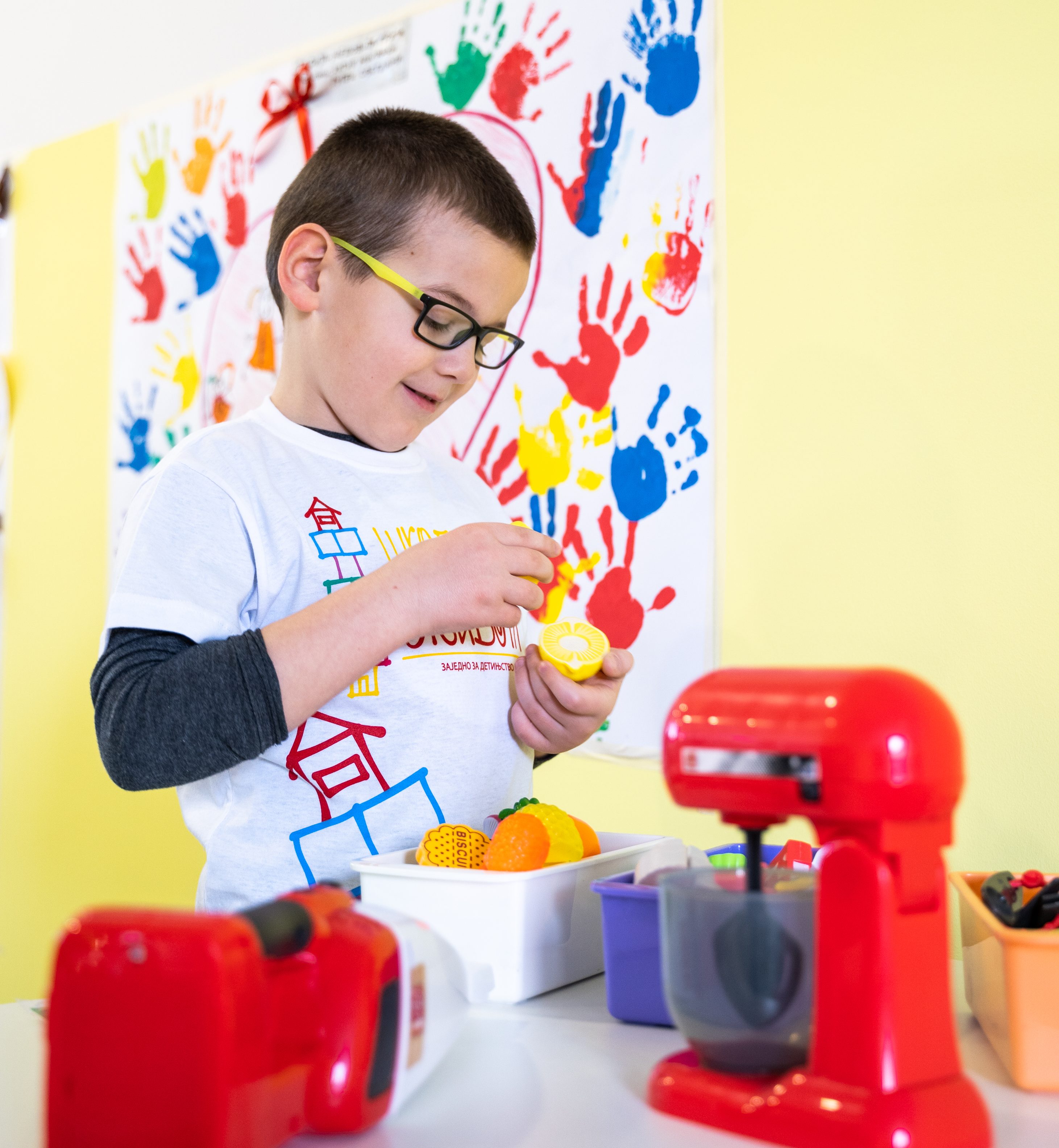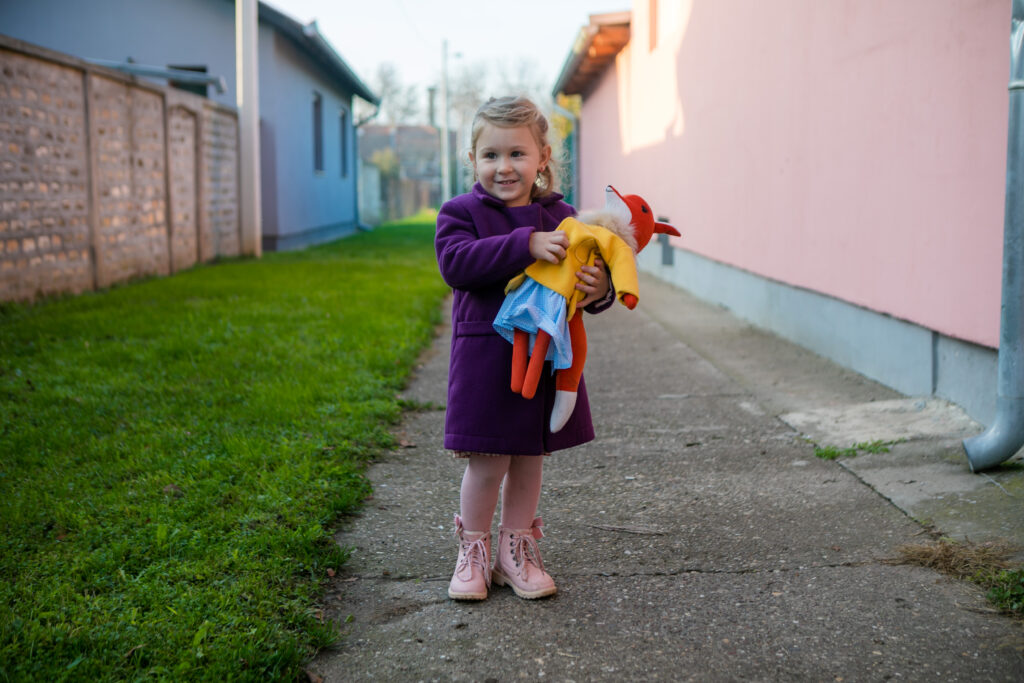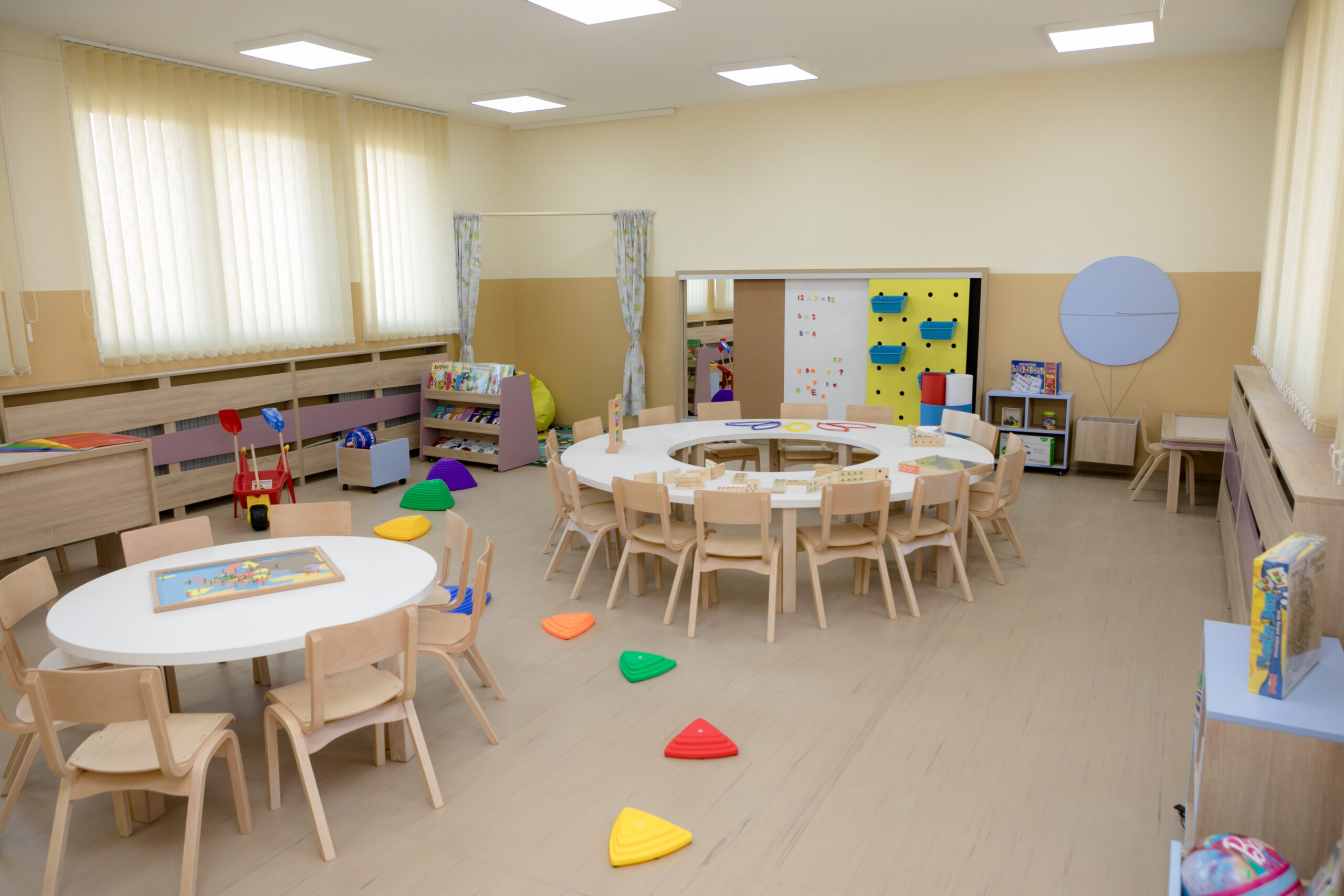[dropcap]I[/dropcap]n my last blog, I’ve explained which vitamins are essential for the strengthening of a child’s immunity during the pandemic. However, as the movement of all of us, especially children, as well as staying outside is limited to a minimum while having in mind that the physical activity of children outdoors contributes to better immunity, it is crucial what foods to offer to children and how to exercise their nutrition daily, in this period.
Therefore, the principle of proper nutrition is important: children should have three main meals, three to four hours apart, and two snacks, between breakfast and lunch and between lunch and dinner.
Good food choices for children are especially important in this period.
Breakfast – the most important meal of the day
Whereas a good breakfast choice for a child’s developing body provides energy, nutritious ingredients, calcium and iron minerals, vitamins, and fiber. Good food choices for children for breakfast:
- cereal flakes with fruits (dried, fresh, kernel) and ground seeds (flax, sesame, sunflower, pumpkin), with milk, honey, yogurt;
- bread and pastries, preferably half made of whole-grain flour, with cheese, yogurt, fruit;
- polenta and cornbread with cheese, spinach and/or nettles, with milk, yogurt;
- corn or buckwheat pancakes with spreads of cheese, with vegetables and seeds;
- combinations of eggs with vegetables, cheese;
- various spreads of fish, cheese, with vegetables and raw non-salty seeds (sesame, sunflower, ground flax, pumpkin);
- squeezed vegetable and fruit juices, prepared just before consuming, or sometimes smoothies.
Good food choices for children for snacks
Fresh seasonal, dried, tropical, southern and kernel fruits, milk cooked snacks, cooked corn, baked pumpkin, apples, homemade popcorn, homemade pastries, cakes, and pies with fruit, with or without reduced sugar content, homemade fruit yogurt, etc.

Good food choices for children are especially important in this period.
Lunch
Combined with homemade broth, soup, vegetables and meat or fish, or eggs and salad. It should contain legumes that contain a high amount of fiber as well as antioxidants. Beans, peas and lentils should be prepared without meat while string bean which is of low energy value should be prepared with added meat, eggs…
Green vegetables are something one should have on the menu every day.
Spinach, kale, cabbage, broccoli, lettuce are beneficial foods that, in addition to carotenoids, contain folic acid, fiber. Broccoli contains vitamins, minerals, and fiber. It is rich in vitamin C and carotenoids, antioxidants. It also contains substances that protect cells from damage.
Dinner – the meal the quality of sleep depends on
It is very important for the dinner not to be big, to have a good balance (a meal must not contain meat, potato, and pastry together) and that it is prepared in a manner which does not encumber the digestive system, i.e. not fried, breaded, greasy, and it has to be served no later than one to two hours before sleep.
Easily digestible meals out of non-fatty meat or fish or eggs with mandatory vegetables – salad are recommended, or complex meal-salads, including milk (warm) and dairy products, as well as hot herbal teas.

The principle of proper nutrition is important: children should have three main meals, three to four hours apart, and two snacks, between breakfast and lunch and between lunch and dinner.
Other suggestions on good food choices for children
- The growth hormone is produced the most during sleep. For pre-school children, 10 hours of sleep a day are optimal, or 7 to 8 hours for older children and adults.
- Children need plenty of fluids, primarily water, followed by milk, yogurt, and natural, freshly squeezed fruit juices. Around 8 glasses of drinks, a day is recommended, and during illness, the quantity of liquid the children need is doubled. Do not replace water with juices, especially processed and domestic juices with high sugar content, these represent “empty calories” and cause cavities and obesity;
- Do not give industrial and fast food, candy and carbonated drinks to your children, because they weaken the immune system. These products have no nutritional value. They contain empty calories, additives, and taste enhancers and create a habit in the children, which makes them not consume biologically valuable food. Replace processed candy with homemade ones, without sugar and fats or with lower contents, and with a greater quantity of fresh and dried fruits and nuts (like we do in kindergartens).
- Avoid fried, breaded food and food with heavy sauces, margarine. Instead of them, use healthy fats (dry pressed oils, raw seeds, small amounts of butter, and lard).
- Use raw and unprocessed ingredients to prepare food (whole wheat flour and other grains). A sandwich from whole wheat flour, cheese, or fish, with added raw seeds, vegetables, is the “healthy fast food”.
- Let your children have enough dairy products, rich in calcium (cheese) which is important for bone growth in children. Milk (and butter in small quantities) due to its vitamin A and D content; yogurt drink, whose enzymes have a favorable effect on the digestive system, 2 decilitres of yogurt with probiotic bacteria, daily. Children who are allergic or intolerant of cow milk and dairy products should be given a spread of sesame seed (contains calcium and iron), sardines, anchovies (contain calcium and phosphorus)…
- Enough fish (2-3 times a week), especially those that are rich in good (omega 3) fatty acids and vitamin D (mackerel, herring, tuna, salmon), as well as sardines and anchovies (rich in calcium and phosphorus) and eggs, should be a basis for the diet in this period of limited time spent outside and the lack of sunlight (which are the conditions for strong and healthy bones and teeth).
- In this period, prepare (as much as possible) food with nettle (soups, stews, pies, bread), tea; salads, and dandelion tea and food with fresh ramsons. They are great immuno-stimulators and organism cleaners…
- Establish regular daily meals, at a similar time. Children need a stable environment and to establish a daily rhythm. Regular meals, bath time, reading time and playtime give the sense a sense of emotional stability and security
- Be a good example to children – children should grow up in a good environment; a clean home, regular meals, daily hygiene habit development. The parents should be a good example to children in terms of forming proper diet habits, and they should be eating biologically nutritious food themselves. The development of the immune system in children is dependent on the conditions for growing up.
- Physical activity – children should be physically active (running, jumping, playing…) at least half an hour each day (in these conditions), in accordance with the age of the child and weather, adapt the length of the walks, or outdoor play).
- Hand hygiene – a healthy habit which does not strengthen the immune system, but prevents risk from the epidemic. Be certain that children also wash hands after meals, after playing outside, petting animals, blowing their nose, going to the toilet, and after coming home from the kindergarten.
- High hygiene standards in food preparation – kitchen, food preparation surfaces, appliances, devices and utensils and personal hygiene of everyone preparing and distributing food, areas in which it is processed, as well as established hygiene practices in children (washing hands before and after meals, brushing teeth…) are important factors for preventing epidemiological risks in the complex and delicate diet chain and for protecting the health of children.












